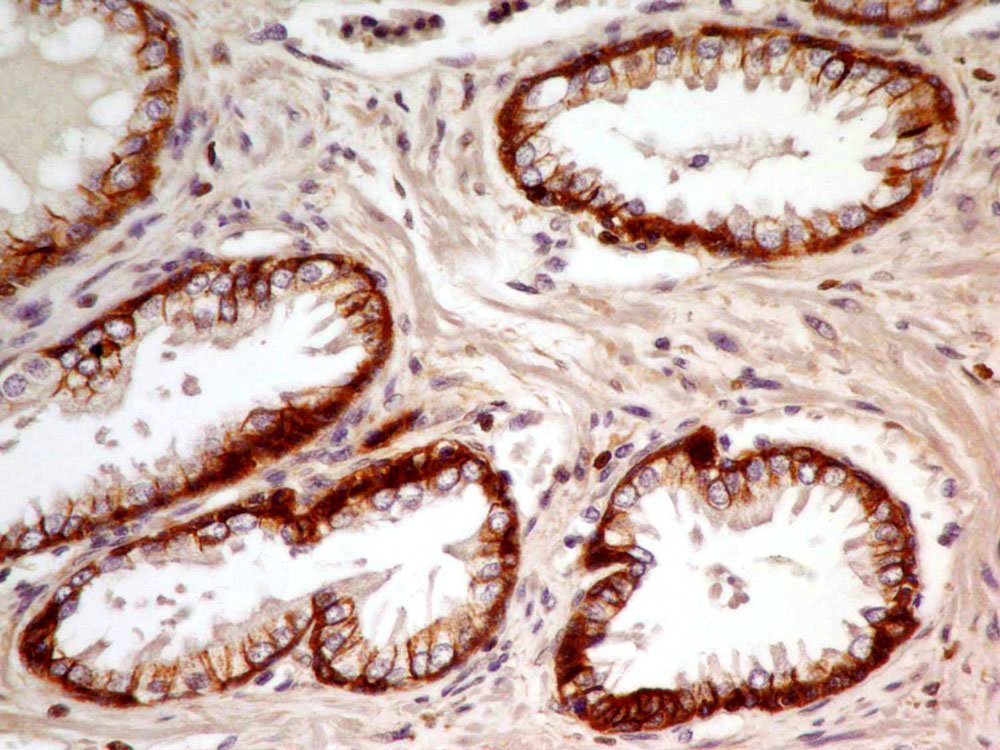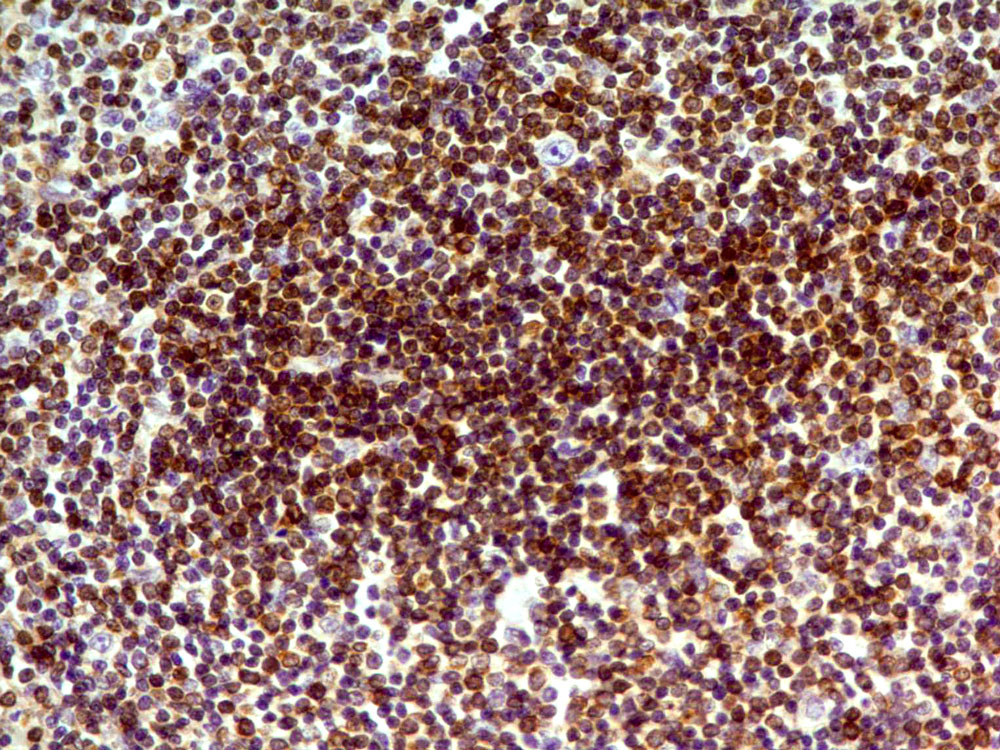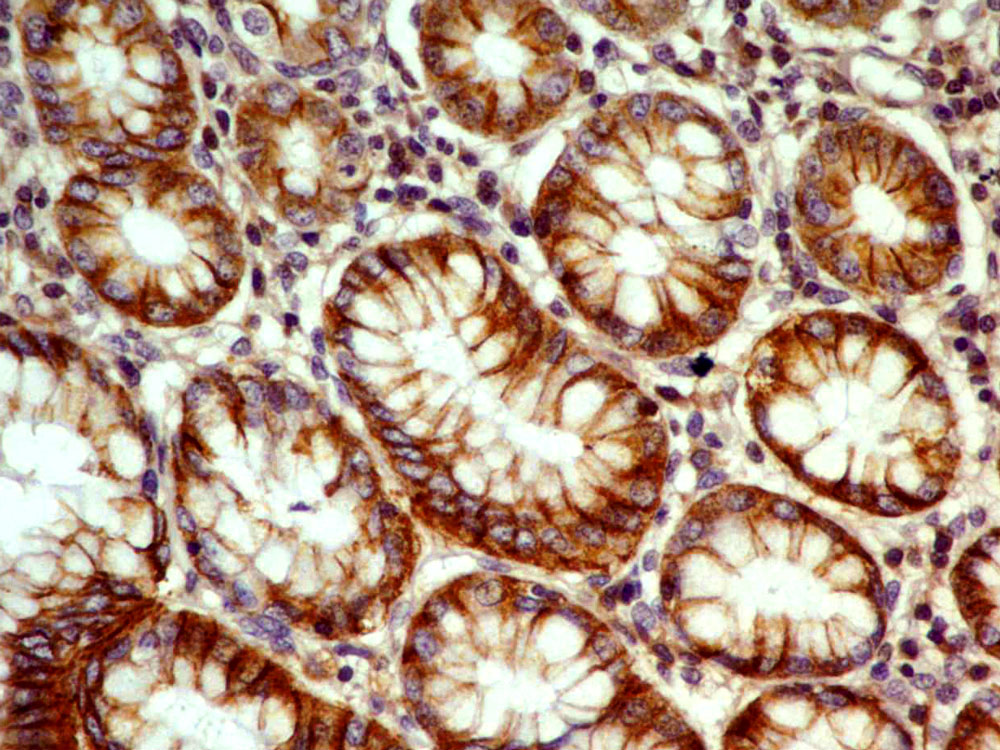Monoclonal Antibody to Bcl-2 (Clone: BC1)

Figure-1: Western blot analysis of Bcl2. Anti- Bcl2(Clone: BC1) was used at 2 µg/ml on 293, MCF7 and Jurkat lysates.
Roll over image to zoom in
Shipping Info:
Order now and get it on Tuesday April 22, 2025
Same day delivery FREE on San Diego area orders placed by 1.00 PM
| Format : | Purified |
| Amount : | 100 µg |
| Isotype : | Mouse IgG1 Kappa |
| Purification : | Protein G Chromatography |
| Content : | 25 µg in 50 µl/100 µg in 200 µl PBS containing 0.05% BSA and 0.05% sodium azide. Sodium azide is highly toxic. |
| Storage condition : | Store the antibody at 4°C, stable for 6 months. For long-term storage, store at -20°C. Avoid repeated freeze and thaw cycles. |
Bcl-2 (B-cell lymphoma 2), is a member of Bcl-2 family of regulator proteins. These proteins contain a hydrophobic cleft that binds to BH3-only proteins and to the pro-apoptotic Bcl-2 family members Bad, Bak, and Bax to inhibit apoptosis. In the absence of this binding, the proapoptotic Bcl-2 members are recruited to the OMM (Outer Mitochondrial Membrane) at which they oligomerize and cause OMM permeabilization, releasing proapoptotic effectors such as SMAC or cytochrome-c. Bcl-2 also neutralize a group of 'sensor' proteins (such as BIM), which are triggered by cytotoxic stimuli such as chemotherapy. BCL-2 proteins therefore have a central role as guardians against apoptosis, helping cancer cells to evade cell death.
Western blot analysis: 2-4 µg/ml, Immunohistochemical analysis: 5 µg/ml, Flowcytometric analysis- 2-4 µg/10^6 Cells
For Research Use Only. Not for use in diagnostic/therapeutics procedures.
| Subcellular location: | Mitochondrion outer membrane, Nucleus membrane, Endoplasmic reticulum membrane |
| Post transnational modification: | Monoubiquitinated by PRKN, leading to increase its stability. Ubiquitinated by SCF(FBXO10), leading to its degradation by the proteasome. |
| Tissue Specificity: | Expressed in a variety of tissues. |
| BioGrid: | 107068. 102 interactions. |
|
There are currently no product reviews
|


















.png)











